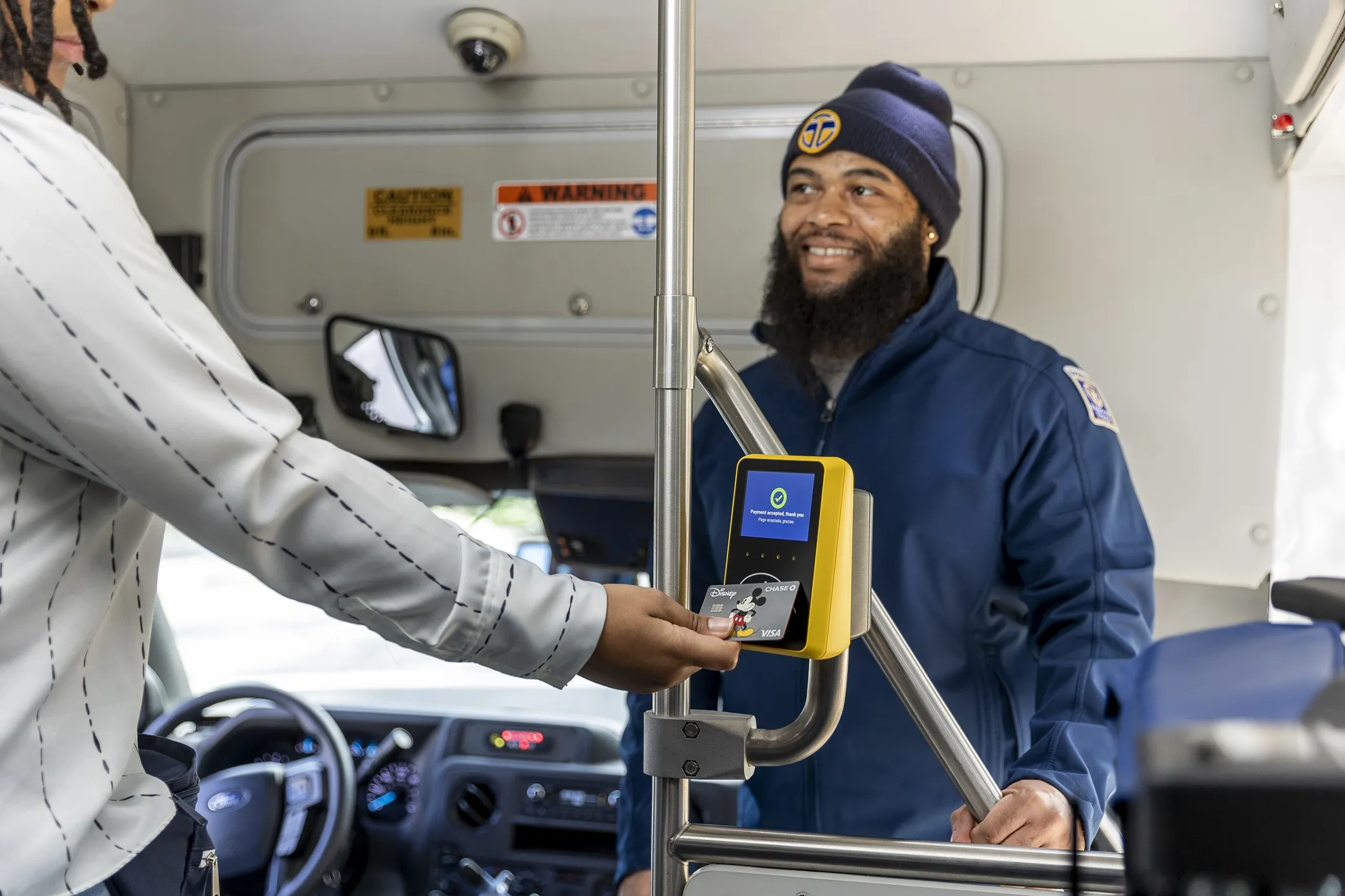Customers in Massachusetts Bay on the US east coast can now purchase and then display rail tickets and passes using the MBTA mTicket app for iPhone and Android. Blackberry devices will also be supported soon. Massachusetts Bay Transportation Authority (MBTA) and Masabi US, the transit mobile ticketing provider, jointly announced the launch of the US’ first full smartphone commuter rail ticketing system. The tickets are displayed on the phone’s screen as an encrypted barcode and as a human readable ticket.
November 13, 2012
Read time: 3 mins
Customers in Massachusetts Bay on the US east coast can now purchase and then display rail tickets and passes using the MBTA mTicket app for iPhone and 1812 Android. 4275 Blackberry devices will also be supported soon.
5200 Massachusetts Bay Transportation Authority (MBTA) and Masabi US, the transit mobile ticketing provider, jointly announced the launch of the US’ first full smartphone commuter rail ticketing system. The tickets are displayed on the phone’s screen as an encrypted barcode and as a human readable ticket. The app can be found by searching for ‘MBTA mTicket’ in the 493 Apple App Store and 1691 Google Play.
“The new MBTA mTicket application is the latest innovation from Massachusetts Department of Transport (MassDOT) and the MBTA,” said MassDOT secretary and CEO, Richard A Davey. “Customers will now have the ability to purchase tickets without waiting in lines meaning they get more time back in their day and more control over their commute.”
“With this new application, commuter rail users don’t have to wait in line to purchase tickets nor pay a surcharge for buying tickets aboard trains. Customers may purchase a ticket in seconds - anywhere, anytime,” said Acting MBTA General Manager, Jonathan Davis. “Mobile ticketing offers customers the convenience and simplicity that makes it easier than ever to use public transit.”
The new app will be a relief to many MBTS customers, since less than half of MBTA’s 140 commuter rail stations have fare vending machines, and many customers to pay for tickets on board. Customers with smartphones can now buy tickets via credit or debit card directly from their phone.
The new solution helps the MBTA reduce costs by eliminating the need for additional vending machines and lowering cash handling costs. To help combat fare evasion, all mobile tickets also have cryptographic validation. Train conductors will be checking tickets to ensure their validity using their own smartphone application, avoiding the need for to them to carry heavy custom scanning equipment.
The new system uses Masabi’s JustRide system, a comprehensive mTicketing solution including: consumer-facing applications, management console, backend servers, payment integration and scanning/validation software for train conductors. All transactions are secured using its award-winning encryptME security system that has been validated to US government standards.
“By placing a personalised ticket machine in the pocket of commuters, they can now buy tickets wherever they are, faster than ever before,” said Kevin Mansfield, Masabi’s JustRide Product Manager. “MBTA will also see significant benefits in terms of reducing costly cash handling charges and the cost of additional ticket machines. We are delighted to have launched our first JustRide end-to-end mTicketing system.”
“The new MBTA mTicket application is the latest innovation from Massachusetts Department of Transport (MassDOT) and the MBTA,” said MassDOT secretary and CEO, Richard A Davey. “Customers will now have the ability to purchase tickets without waiting in lines meaning they get more time back in their day and more control over their commute.”
“With this new application, commuter rail users don’t have to wait in line to purchase tickets nor pay a surcharge for buying tickets aboard trains. Customers may purchase a ticket in seconds - anywhere, anytime,” said Acting MBTA General Manager, Jonathan Davis. “Mobile ticketing offers customers the convenience and simplicity that makes it easier than ever to use public transit.”
The new app will be a relief to many MBTS customers, since less than half of MBTA’s 140 commuter rail stations have fare vending machines, and many customers to pay for tickets on board. Customers with smartphones can now buy tickets via credit or debit card directly from their phone.
The new solution helps the MBTA reduce costs by eliminating the need for additional vending machines and lowering cash handling costs. To help combat fare evasion, all mobile tickets also have cryptographic validation. Train conductors will be checking tickets to ensure their validity using their own smartphone application, avoiding the need for to them to carry heavy custom scanning equipment.
The new system uses Masabi’s JustRide system, a comprehensive mTicketing solution including: consumer-facing applications, management console, backend servers, payment integration and scanning/validation software for train conductors. All transactions are secured using its award-winning encryptME security system that has been validated to US government standards.
“By placing a personalised ticket machine in the pocket of commuters, they can now buy tickets wherever they are, faster than ever before,” said Kevin Mansfield, Masabi’s JustRide Product Manager. “MBTA will also see significant benefits in terms of reducing costly cash handling charges and the cost of additional ticket machines. We are delighted to have launched our first JustRide end-to-end mTicketing system.”










